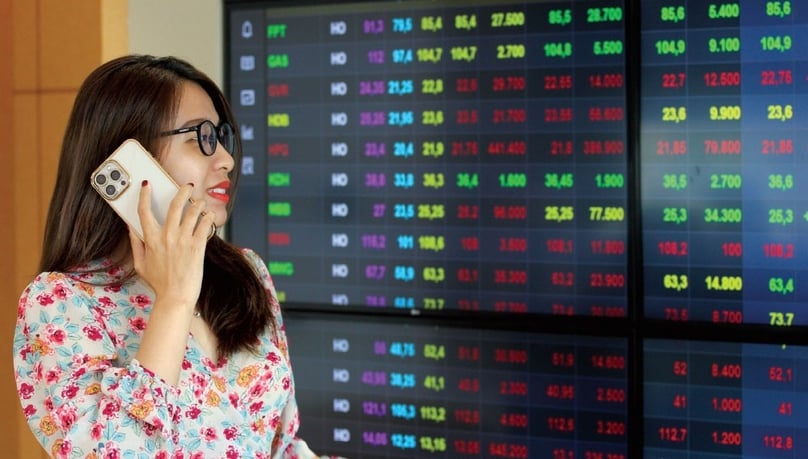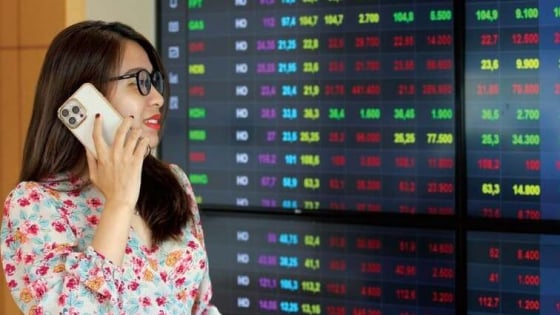By
Minh Hue
Mon, October 13, 2025 | 11:17 am GMT+7
The upgrade of the Vietnamese stock market status by FTSE Russel from “frontier” to “secondary emerging” could drive foreign capital back into the market as early as next year, predicted major broker VNDrirect.
 The VN-Index closed October 10, 2025 at 1,747.55. Photo courtesy of Saigon Times.
The VN-Index closed October 10, 2025 at 1,747.55. Photo courtesy of Saigon Times.
The broker estimated that once Vietnam is officially included in FTSE’s Secondary Emerging Markets group, the country could attract about $1-1.5 billion from open-end funds and exchange traded funds (ETFs) tracking FTSE indices.
Including active fund flows, total inflows could range from $3.4 billion (according to HSBC estimate) to $6 billion (FTSE forecast). HSBC also noted that about 38% of Asia-focused funds and 30% of global emerging market funds already hold Vietnamese stocks.
In its latest announcement on October 7, FTSE Russell stated that it decided to upgrade Vietnam from a “frontier” to a “secondary emerging” market, effective from September 21, 2026.
However, the upgrade remains contingent upon an interim review in March 2026, which will assess the progress made in improving market access for foreign brokers – a key condition to attract broad participation from international investors.
VNDirect considered this decision a historic milestone for Vietnam’s capital market. This move reflects Vietnam’s strong commitment to reforms aimed at enhancing transparency, standardizing trading procedures, and aligning with international practices, thereby creating a more favorable investment environment for global capital.
According to the broker, most of the optimism surrounding the upgrade has already been priced into the market in recent months. Since the beginning of the year, the benchmark VN-Index, representing the Ho Chi Minh Stock Exchange, has risen by around 33%, bringing its valuation closer to the average of other emerging markets.
While foreign capital inflows are expected to increase, large-scale allocations may not occur immediately, only some active funds may disburse ahead of the official upgrade in September 2026.
VNDirect expected the market to react quickly to FTSE’s announcement before shifting focus back to key fundamentals such as Q3 earnings results, the government’s growth support policies, macroeconomic stability, and Vietnam’s medium- to long-term growth story.
Stocks expected to benefit directly from the upgrade include VIC of Vingroup and VHM of Vinhomes (real estate); VCB of Vietcombank, STB of Sacombank and SHB of Saigon-Hanoi Bank (banking); SSI of Saigon Securities, VIX of VIX Securities and VND of VNDirect (securities); MSN of Masan Group and VNM of Vinamilk (consumer goods); FPT of FPT Corp. (technology); and HPG of steel giant Hoa Phat (industrial production).
To move toward a higher classification such as Advanced Emerging Market status by FTSE and an upgrade by Morgan Stanley Capital International (MSCI), Vietnam needs to continue pushing key reforms.
These include implementing same-day settlement, allowing short-selling of unsettled securities, completing the legal framework for securities lending and short selling, shortening the settlement cycle, and raising foreign ownership limits in restricted sectors.
Additionally, enhancing transparency, ensuring consistency in the legal system, and improving the quality of market information are critical. VNDirect experts believed that regulators will maintain strong reform momentum, paving the way for a potential MSCI upgrade to emerging market status between 2028 and 2030.
If this materializes, Vietnam could attract approximately $3 billion in foreign capital from open-end funds and ETFs tracking MSCI indices, far exceeding the capital expected from the FTSE upgrade to secondary emerging market.
The VN-Index closed Friday at 1,747.55 points, up over 100 points, or 6.2%, in only one week.

